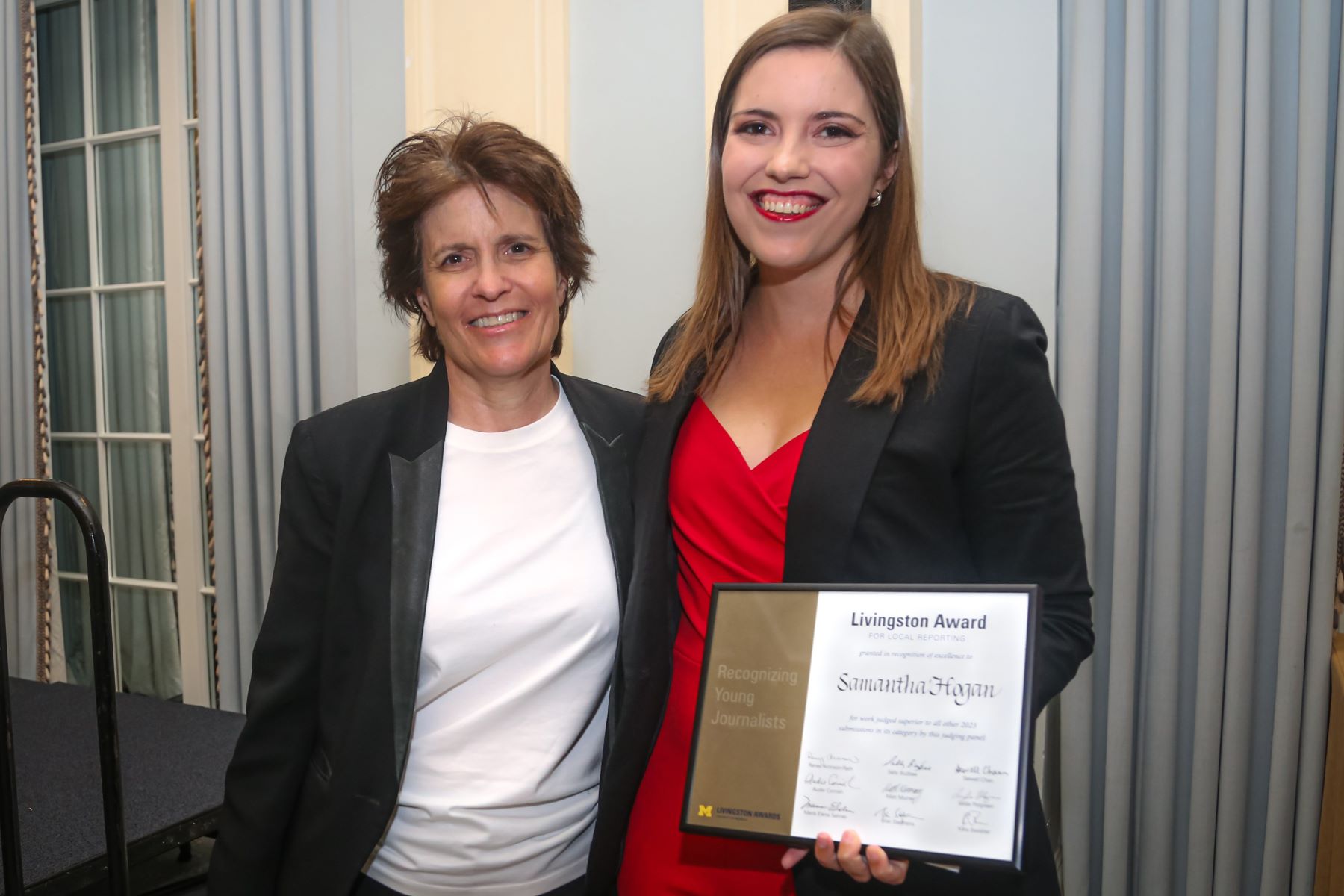Former Maine Monitor government accountability reporter Samantha Hogan was awarded the Livingston Award for Local Reporting this week for her investigation into Maine’s probate court system.
“Samantha Hogan’s multi-year investigation into an alarming lack of oversight within Maine’s probate courts is a shining example of local journalism at its finest,” said Kara Swisher, an award-winning tech journalist at New York Magazine and a Livingston judge.
“Her efforts were creative and meticulous,” Swisher said. “Her reporting catalyzed grassroots change and strengthened civic engagement and democracy.”
The Livingston Awards for Young Journalists were established in 1981 to recognize outstanding reporting and bolster the careers of journalists under the age of 35.
Hogan, now an investigative reporter with the Atlanta Journal-Constitution, spent a year investigating Maine’s probate courts and uncovered that eight incapacitated adults under public guardianship died over a three-year period and authorities didn’t know exactly how.
That news prompted an immediate outcry from state lawmakers for better oversight of guardians and renewed calls for reform to the probate courts that have long been overlooked, despite serving thousands of Mainers.
Additionally, Hogan uncovered that millions of dollars in the estates of aging or deceased Mainers were at risk of pilfering from shady lawyers and caretakers, and that young adults with intellectual or developmental disabilities were sometimes appointed guardians without a lawyer advocating on their behalf for less restrictive alternatives.
Hogan’s investigation revealed that the probate courts set up to oversee guardianships and estates are so antiquated and understaffed they do not know how many guardianships the state has — much less how to institute a systematic approach that would prevent fraud and abuse.

The series received support from the Fund for Investigative Journalism, the Investigative Editing Corps and Report for America.
Finalists for the local reporting division included journalists from the Boston Globe; the Los Angeles Times; New York Magazine; the Chicago Tribune; Baltimore Banner; Mississippi Today and ProPublica; Public Health Watch; Grist; the Albany Democrat-Herald; CQ Roll Call; the Courier-Journal; the Pittsburgh Post-Gazette; the Times-Picayune; WPLN Nashville Public Radio and ProPublica; LAist Studios; South Dakota Searchlight and the Argus Leader; and Houston Landing.
Allison Behringer and Lila Hassan of KCRW public radio in Santa Monica, California, received the Livingston Award for National Reporting for three podcast episodes that explored early-onset puberty, postpartum psychosis and the fight for abortion training in a post-Roe America.
Renata Brito of The Associated Press received the Livingston Award for International Reporting for a visually-driven investigation retracing the tragic voyages of West African migrants lost in the Atlantic Ocean on their quest to reach Europe.
“We are honored to recognize this exceptional reporting that uses text, audio and visual storytelling to full effect,” said Lynette Clemetson, director of the Wallace House Center for Journalists at the University of Michigan, which is home to the Livingston Awards.
“It is especially inspiring to honor the doggedness of these journalists during a period of painful retrenchment in many news organizations,” she said. “The persistence of young reporters to pursue challenging work with such ambition and creativity pushes our entire industry forward.”







